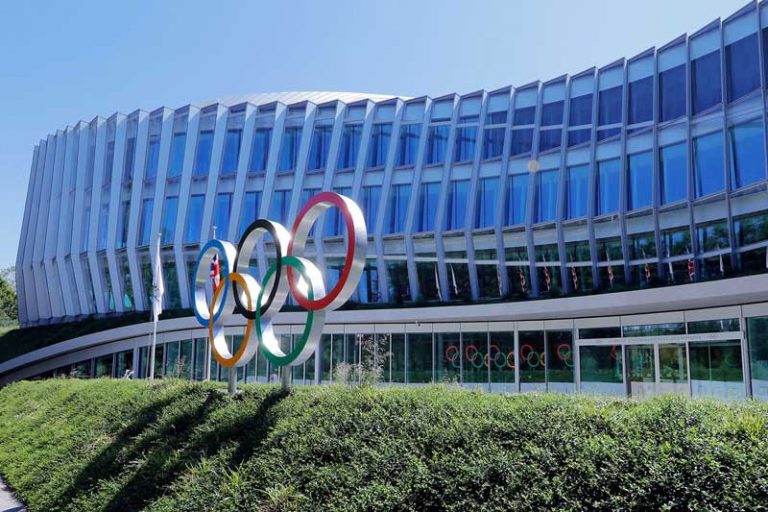[Editor’s Note: Happy April Fools Day! This article is fictional in our April Fools Day style. But we do have rare response on the topic from IOC Executive Director Christophe Dubi: “We will not impose a requirement if it is not the habit in a given country to organize a public referendum. However … surveys are conducted and we do ourselves our own independent survey.” Read our past April Fools Day articles below.]
On the final day for cities to express interest in bidding for the 2026 Olympic Winter Games, International Olympic Committee (IOC) officials have admitted that referendums to gauge public support for bids are quickly becoming permanent fixtures in the process, and they should become the standard.

Such referendums have, however, become major obstacles in the way of cities pursuing their Olympic dreams. A bid from Innsbruck in Austria was already stopped in its tracks last year when it lost a public vote before a 2026 campaign could officially begin.
Hamburg in Germany was ousted from the 2024 race when residents defeated the bid in a 2016 vote. Cities including Munich, Krakow, Davos and others also had their plans crushed at the ballot box. For 2024, both Paris and Los Angeles were awarded the Games because they were the last cities standing after public scrutiny eliminated others from competition.
The goal is to remove referendum angst from the process
An IOC member who asked not to be named said discussions are now underway to level the playing field and make municipal or federal referendums a mandatory part of the Olympic bid process for all cities involved. Certified results showing majority public support for the Olympics would become a compulsory part of the guarantee package that is submitted to the IOC. For 2026, those results would be due in January 2019.
“The goal is to remove referendum angst from the process; the so-called FOR (fear of referendum) that hangs over bids as they precariously approach a campaign,” the IOC source explained.
“If they know it’s coming regardless of any domestic politics then they can effectively plan for it with the knowledge that all cities will have the same challenge.
“And as a bonus, we’ll know whether the Olympics will be welcome in the city that we’ll be partnering with for seven years, then moving into for three weeks.”
The plans would include an IOC-run social media campaign to improve the brand value of the Olympics and educate the public on the benefits to host cities.
Sion in Switzerland will face a referendum across Valais region in June and could also be judged in a national vote if Parliament approves a motion. Calgary city council will decide whether to hold a city-wide plebiscite on its 2026 bid at a meeting April 10, though government partners are pushing for it to happen. The Austrian Communist Party is gathering signatures for a petition to force a vote over a bid from Graz.
But no such referendum is expected in Sapporo in Japan or Erzurum in Turkey.
“If plans are approved,” the IOC member said, “those cities will be forced to face a vote as well – making it fair for everyone.”
“We’ve been fools,” Flora Plio, President of the Alps For Oil environmental watchdog in Europe said, adding “but now it’s time to force citizens to decide if they are willing to tolerate the impact the Olympics could have on the environment.
E-Sports on Ice
Meanwhile, as the International E-Sports Federation (IESF) tries to make its way onto the Olympic program, it has been learned that the IOC is working on a way that the sport could be included on the Winter Games program instead of at the already-crowded Summer Games.

IOC rules state that only sports contested on snow or ice can be staged at the Winter Olympics. But with large gaming events already being held in arenas around the world, officials are proposing that gamer stations be constructed on the arena’s ice surface as they compete in the events. Athletes could wear special traction shoes to avoid slips and falls while they make their way to and from the station for their appearance.
Another proposal suggested the gamer stations could be situated on the hard-packed snow at the bottom of the ski jump, and the area could be used when jumping events are complete. But that idea was ultimately rejected because the cold temperature could weaken the athletes reflexes during game play.
[posts_carousel query_type=”posts” num=”14″ posts=”75255,71931,69578,68353,67597,67100,66539,65991,65079,63903,57668,58758,59937,56249,71931″ animationloop=”true”]


